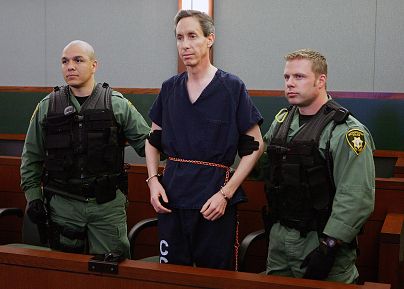Women's abilities to control their own reproductive choices are often determined by cult leaders, writes Alexandra Stein.
By Alexandra Stein
 ADVERTISEMENT
ADVERTISEMENT
 ADVERTISEMENT
ADVERTISEMENT
In a cult, the ability to decide if and when to have a child — perhaps the most basic decision in a woman's life — is taken over by the leader as a demonstration of the leader's control and in an attempt to undermine the attachment between mother and child. The goal is to focus all feelings of attachment on the leader or group, and on them alone.
This is one reason why, though women and men both suffer in the iron grip of charismatic and authoritarian cult leaders, women followers face a unique set of life-altering issues — and those unique issues often become the focus of media coverage of cult cases. Women's sexual lives, their lives as mothers and their ability to control their own reproductive choices are all upended within cultic organizations.
For instance, former members from both Scientology and the New York-based political cult the Newman Tendency have reported women being forced to terminate pregnancies so as not to interfere with their duties to the organizations. On the opposite end of the spectrum, though, cults such as the Children of God controlled reproduction by forbidding any form of birth control whatsoever. Another cult leader reportedly decided who was "developed enough" to have children and who was not as a way to individually control, punish or reward women followers.
If and when a child is born a whole new series of controls may be evident. Many groups separate mothers and children for long periods of time, or raise them communally (as in David Koresh's Branch Davidians, where children barely knew who their mothers were). Scientology recruits young teenagers and even pre-teens to the Sea Org, their secretive inner organization, separating them from their parents, sometimes for years.
Not all groups interfere so directly with parent-child attachment, but all will keep members extremely busy so that mothers have little time to give the kind of attention to their children that they otherwise might. And, what parental attention is available to children may have to be played out within the particular structure of the group. Mothers in the Watchtower organization of Jehovah's Witnesses, for example, may have to take their young children out for hours every week to "witness" to the public and, when not witnessing, nearly every evening is devoted to study of JW materials either at home or at the Kingdom Hall.
Recently, thousands of cases are being exposed of child abuse and sexual abuse of women in the JWs, where the organization refused to take judicial action against the accused unless victims could comply with its "two witness rule" — a horrific rule that stated that abuse could not be proven unless the victim could provide two eyewitnesses to the same abusive event. Mothers in these types of closed cultic groups then end up in a position in which they are unable to protect their children.
Women and men's sexuality and relationships are controlled in cults, of course, but in different ways. It is now well known that, in the Fundamentalist Church of Latter Day Saints, young women were married off to older men who already had up to 60 or 80 wives. (The leader of that group, Warren Jeffs, is now doing time for aggravated sexual assault of underage girls.) Meanwhile the "extra" boys left over as a result of these plural marriages were booted out of the cult and left on the edge of the highway in the Arizona desert to fend for themselves.
In my work, I have met women who have come out of a range of cults — yoga-based groups, cults centered around the use of the hallucinogen ayuhuesca and a pentecostal Nigerian cult, where women were groomed for sex with the leader. In the latter case, some women in the cult were kept in a dormitory for months with very little access to the outside and "allowed" to eat the leftovers from the leader's lunch plate as a "privilege" as part of grooming them for sexual activity. The Children of God cult simply pimped women as prostitutes for "the Lord".
This type of sexual abuse is often sold as way to become closer to the spirits or to god; it's represented to adherents as not really "sex" at all, but a form of spiritual practice.
Other groups arrange marriages, sometimes to a partner the woman has never met, as happens with Unification Church (Moonie) mass weddings. The media tends to portray these particular events as oddball and laughable but, in my view, it is simple sexual abuse at worse and exploitation at best. An Iranian terrorist cult, the Mujahedin e Khalq, controlled marriage by forcing all its members to divorce in a kind of ideological purification. ISIS, a terrorist cult, entices female recruits with promises of heroic marriage to fighters.
In short, women's right to control their bodies, their child-bearing, their sexuality and their mothering are all taken away in cults as the leader grabs control of these most intimate parts of their lives. Women don't choose this: They are groomed, brought in slowly and gradually separated from their previous lives and close relationships. Once isolated within the cult, and suffocated within its closed world, it becomes almost impossible for followers to maintain their independence. At a certain point, it becomes easier to simply give in, stop thinking and accept the new norms.
Cult leaders do this as part of a system of control; they engage in many of the same tactics of control as one sees in domestic violence cases. The leader slowly gains control of every element of a woman's life and cuts off her close relationships, portraying him or herself as the sole remaining figure to whom the woman should turn; this frightening abuser confusingly becomes the apparent "safe haven". This results in a "trauma bond" through which everything outside of the group and the relationship with the leader feels threatening, and the woman is no longer able to think clearly about her own survival needs. But, when it is the leader and the group that is the real threat, it creates a dangerous situation in which a woman can no longer trust her own feelings and perceptions.
It would be a mistake to think this only happens to people in physically isolated communes and faraway places: Cults are truly everywhere in modern life, from the neighbor who invites you to join a pyramid scheme selling soap, to the "personal transformation" coaching sessions advertised on Facebook, to the great sales job offered to young graduates or to that new church with the joyful music that has just opened up down the street. But be careful when you step over the threshold. Once in it can be very hard to get out.
Women can protect themselves and their children by learn how to recognize the warning signs and manipulative methods of coercive groups and relationships. Unless we do so, we can all be vulnerable to the appealing outside face that cults present to the world.
Alexandra Stein, Ph.D. is an honorary research fellow at Birkbeck, University of London. Her latest book, "Terror, Love and Brainwashing: Attachment in Cults and Totalitarian Systems" was published in 2017. She spent much of the 1980s in a political cult in Minnesota, an experience she documented in her first book, "Inside Out."
Opinions expressed in View articles are not those of euronews.












